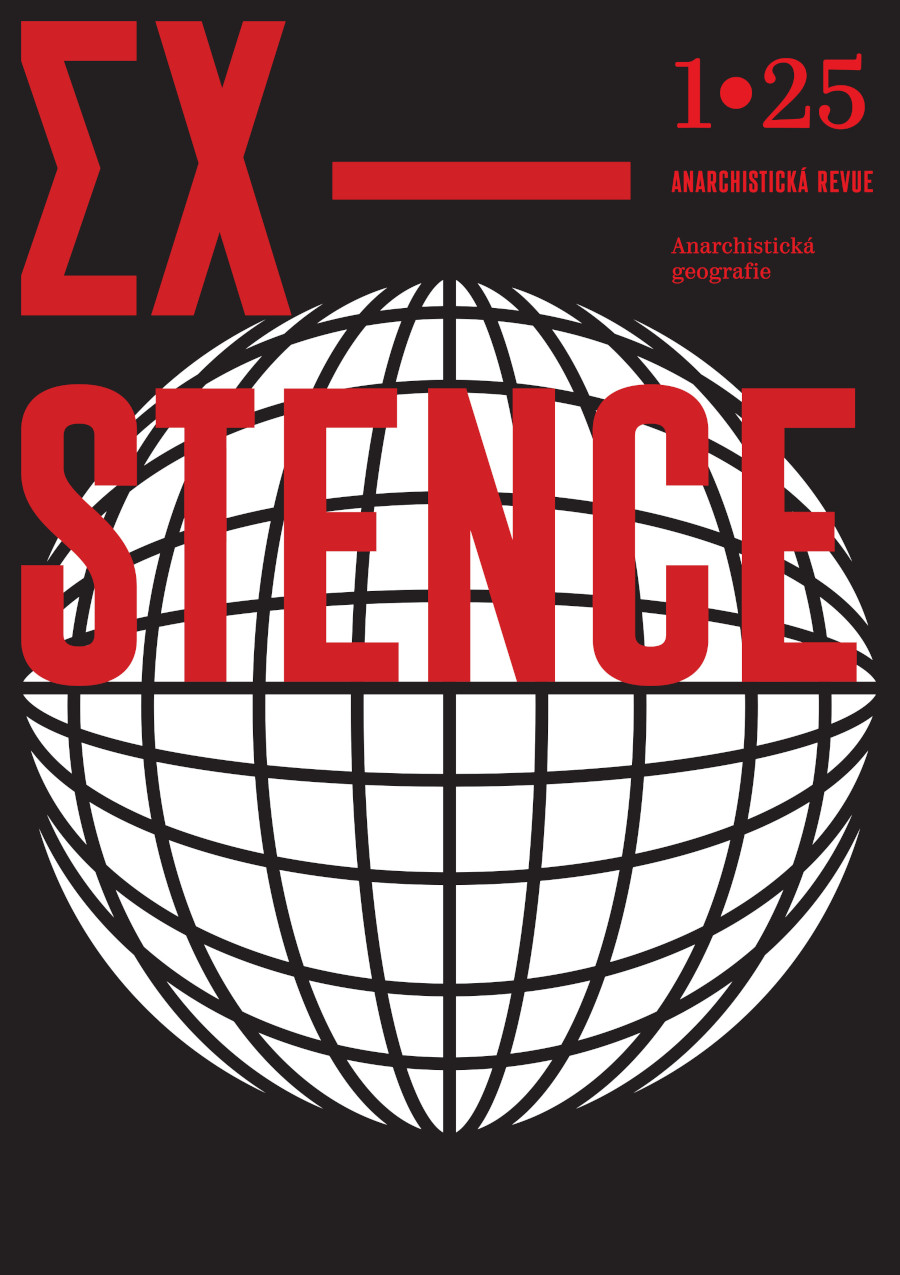Benefice na Budapest Pride
Benefiční (vegan) segedín …(více)

The year 2025 has begun. If anyone believed that things were moving forward and on an improving trend, they may well have sobered up from such an unfounded theory. The worsening climate crisis, the genocide in Gaza, Turkish attacks on Kurdish areas, Russia's drive to occupy Ukraine, Trump's ascension to a second presidency... All of these are somehow rewriting the geography. A geography that is based on the dogma that every place must belong to a state, stateless territories, unclear borders, areas without control are not allowed. Empires make new territorial claims. Some advance the old-fashioned way by force, corruption or manipulation. Trump wants to try the commodification route – simply buying back the claimed territory.
Trying to understand how and why maps are being rewritten is just one of the reasons we chose to focus on geography in Existence. At the same time, we try to outline how statist political cartography affects the perception of the world and limits the social imagination, ignoring anarchic and anarchist places in space and time. We point out how 20th century geopolitics has tragically shaped the mental settings of a substantial part of the Western left. Hence the call for the decolonization of maps and alternative geographies, with, of course, an emphasis on an anarchist perspective.
In order to understand anarchist geography, we present the work of perhaps its most famous protagonist, S. Springer. We present his book The Anarchist Roots of Geography and translate his extensive essay "Why Radical Geography Must Be Anarchist?", which is also a brilliant indictment of the rigid Marxist approach. For that alone it is worth a careful reading. Below you will find three interviews on the topic. The first with anarchist urbanist J. Kuzmanic on urban design, housing and autonomy, the second with the Decolonial Atlas Project, and the third, original, with social geographer M. Kohout, who is based at the University of California, San Bernardino, on. Since the leading anarchist thinkers – P. Kropotkin and E. Reclus – were also prominent geographers, we will introduce them as well. M. Fleming introduces Reclus and his work as an anarchist and geographer in what is probably the most comprehensive text on him ever published in Czech. We present Kropotkin firstly with his contemporary essay, which significantly interferes with the theme of the previous issue of Existence – pedagogy, and then with M. Davis's article on his contribution to the climate change debate. The theme of anarchist geography is further developed in an excerpt from U. Gorgon's book on bioregionalism, A Karimov's article on autonomy in the Pamirs, and M. Bijl's contribution on the anarchic region of Zomia.
The rest of Existence consists of theoretical texts by T. Ibáñez on negativity and positivity in anarchism and Z. Brom on anarchism in the mainstream. This is followed by obituaries of M. E. Izquierdo, V. Zarkevich, L. Pinelli, R. P. Wolff, R. Shvedov and M. Hoopes. The recently deceased B. Zephaniah writes about how he became an anarchist. A new autonomous space in Prague, AC 254, is featured in conversation. And as always, there are reviews, movement activities, news from the AF, and the text of the A3 wall newspaper for the previous six months.
Benefiční (vegan) segedín …(více)
9. - 10. 5. 2025, Rohozná u Jihlavy
Sport a muzika …(více)
Kvír turistika …(více)
Odpůrci interrupcí Prahou neprošli. Protestující zablokovali Pochod pro život
denikalarm.cz 28.4.2025Nechat z půdy vyrůst rebelii. O vztahu k místu, zemědělství a antikapitalistické produkci potravin.
druhasmena.cz 24.4.2025„Môžeš utekať, no neskryješ sa!“ Čo je nové v spore s podvodníckou VegaNanou
www.priamaakcia.sk 12.4.2025